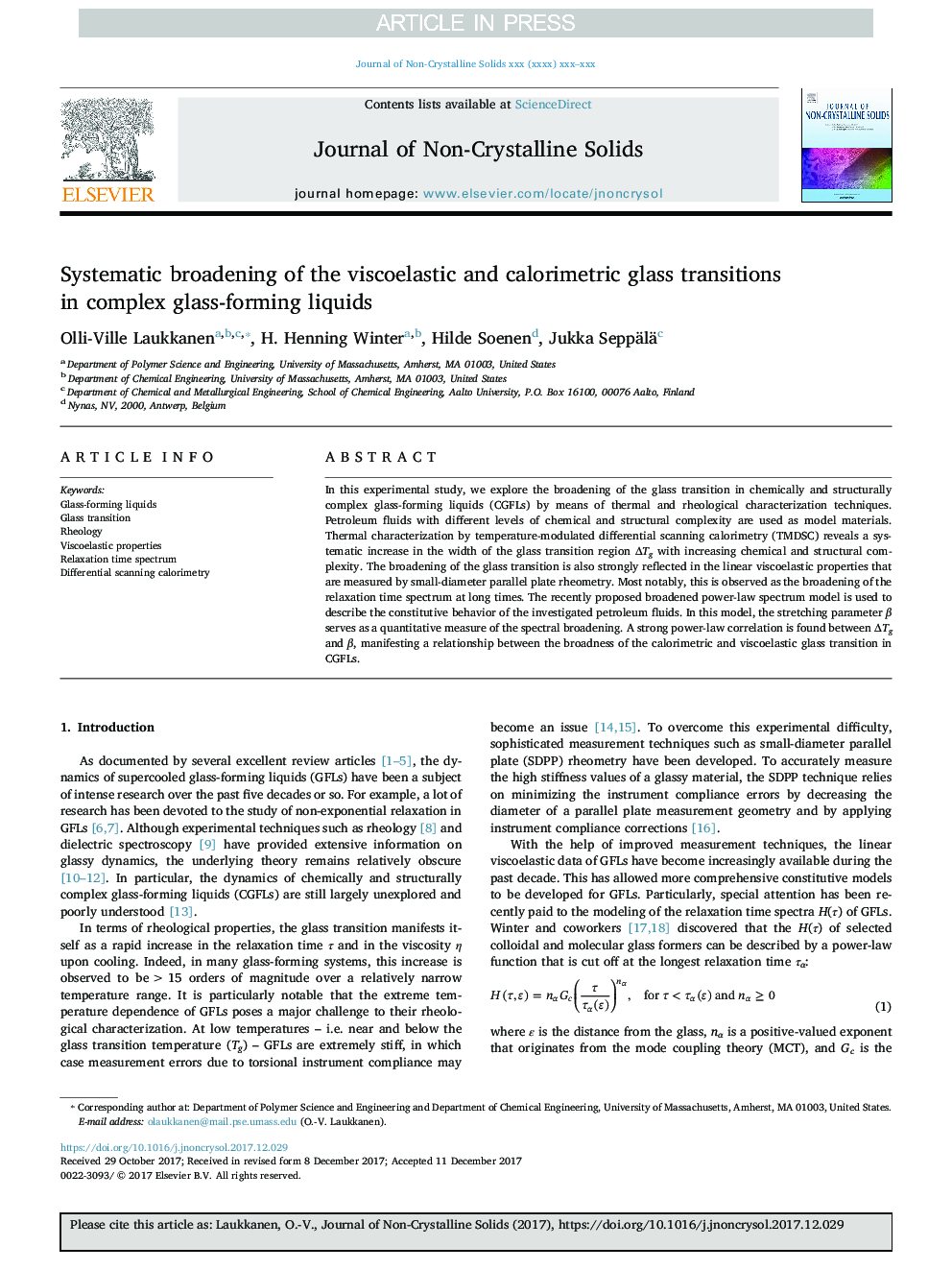| Article ID | Journal | Published Year | Pages | File Type |
|---|---|---|---|---|
| 7900122 | Journal of Non-Crystalline Solids | 2018 | 8 Pages |
Abstract
In this experimental study, we explore the broadening of the glass transition in chemically and structurally complex glass-forming liquids (CGFLs) by means of thermal and rheological characterization techniques. Petroleum fluids with different levels of chemical and structural complexity are used as model materials. Thermal characterization by temperature-modulated differential scanning calorimetry (TMDSC) reveals a systematic increase in the width of the glass transition region ÎTg with increasing chemical and structural complexity. The broadening of the glass transition is also strongly reflected in the linear viscoelastic properties that are measured by small-diameter parallel plate rheometry. Most notably, this is observed as the broadening of the relaxation time spectrum at long times. The recently proposed broadened power-law spectrum model is used to describe the constitutive behavior of the investigated petroleum fluids. In this model, the stretching parameter β serves as a quantitative measure of the spectral broadening. A strong power-law correlation is found between ÎTg and β, manifesting a relationship between the broadness of the calorimetric and viscoelastic glass transition in CGFLs.
Keywords
Related Topics
Physical Sciences and Engineering
Materials Science
Ceramics and Composites
Authors
Olli-Ville Laukkanen, H. Henning Winter, Hilde Soenen, Jukka Seppälä,
